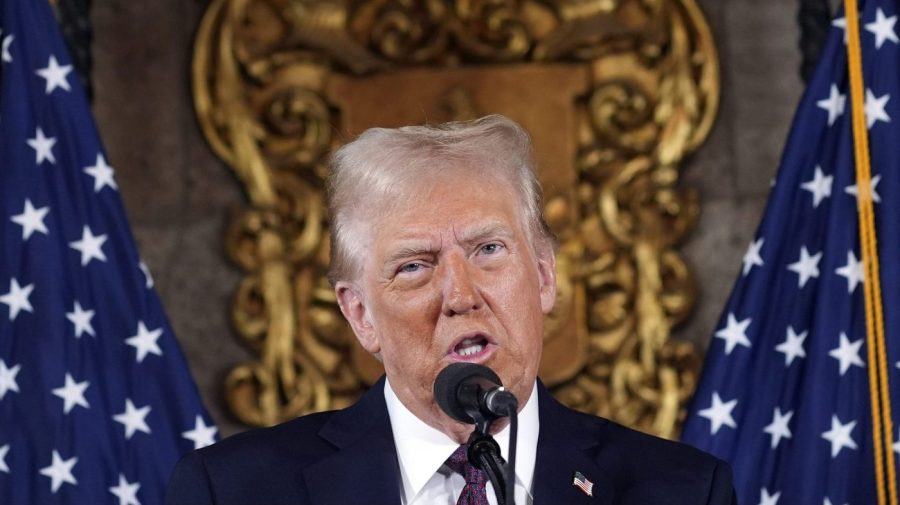
President-elect Trump has asked the Supreme Court to stop implementation of the bipartisan TikTok law, arguing that he, and only he, can make the law unnecessary.
Our revolutionary forefathers would be appalled.
On Dec. 13, 1774, Paul Revere rode through the night hell-bent for leather. Four months before the Battle of Lexington and Concord and his famous midnight ride, Revere sped to Portsmouth, New Hampshire to urge patriots to seize 100 barrels of gunpowder in Fort William & Mary before a British warship arrived to take the powder.
When four hundred armed men approached on Dec. 14, Captain John Cochran and five defenders barred the fort’s gate, firing muskets and cannons as militia rushed forward, but no one was hit. (One suspects the five soldiers, thinking better of antagonizing 400 armed men from a run-down fort, shot a bit high.)
Cochran warned the intruders that it was treason to take the king’s powder, but take it they did (and some of that powder reportedly ended up at Bunker Hill). Having seized the fort, the militia tore down a huge British flag with a cheer. King George was aghast at the “very flagrant outrage.”
Since no one was seriously injured, the war was averted for another four months.
With the 250th anniversary of the American Revolution upon us, we should give some thought to why they fought. What motivated the men who stormed Fort William & Mary? And what does it say about today’s disputes?
Many try to encapsulate the revolution in Patrick Henry’s famous cry: “Give me liberty, or give me death.” But Henry made it clear that it was not simply about personal liberty, but the community’s right to decide (even when he disagreed).
The problem was not taxation, but taxation without representation, laws being made in Britain where Americans had no voice. If elected, representatives had “a right to our confidence,” Henry explained.
Some might quote Thomas Jefferson’s immortal “all men are created equal” for the revolution’s meaning. And while the slaveowner’s sight was often limited to white men, his bold vision has been embraced expansively for all people. But equality means not only empowering the disenfranchised but also recognizing that the powerful are subject to laws made by elected officials.
John Adams insisted that a functioning republic is a “government of laws, and not of men.” Kings would not dictate here. We needed “fixed laws, which the people have a voice in making.”
As a new president takes office who has said that he wants to be a dictator — he now says it was only a joke — it is worth remembering that what drove patriots was a commitment to the idea that this would be a nation of laws, and not of men.
A ruler is a tyrant if “bound by no law or limitation, but his own will,” Adams explained.
With TikTok, Trump has again asked the Supreme Court to bow to him rather than the law. On the merits of the case — whether national security concerns outweigh free speech interests — I take no position, but Trump’s filing asks the court to hold the law in stasis because he thinks that he, and only he, can solve the problem.
He argues he “alone possesses the consummate dealmaking expertise, the electoral mandate, and the political will to negotiate a resolution to save the platform.” One might well question his mandate with less than 50 percent of the vote and one of the smallest margins in modern history and the dealmaking of someone who would be wealthier if he had simply invested his massive inheritance, but that isn’t the point.
If the court finds the law violates the First Amendment, it should block it. Congress and a new president can change the law. But the claim that a law should be put on-hold because one man thinks that he can resolve the dispute without the law is an insult to why patriots fought.
We should stay firmly committed to the revolutionary principles: liberty for the people, all created equal, in a nation of laws, not a devotion to one person.
The men who stormed Fort William and Mary that snowy day in December 1774 did not know what was to come, but they were deeply committed to the truth that Jefferson later ensconced in the Declaration: A government must derive its “just powers from the consent of the governed.”
Our forefathers could not abide by the laws crafted by a distant parliament in which they had no voice or enforced by a king who was above the law.
John A. Ragosta, Ph.D., JD. is a fellow at Virginia Humanities and former acting director of the International Center for Jefferson Studies. He is the author of “For the People, For the Country: Patrick Henry’s Final Political Battle.”












